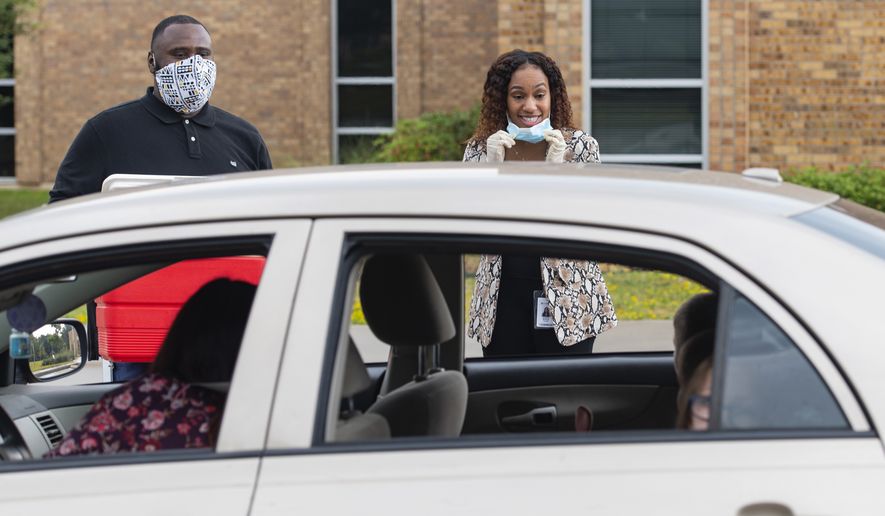OPINION:
The teachers’ unions are fighting hard to keep schools closed this fall, fighting mad in most cases, and it’s a fight that really has little to do with what’s best for kids and almost all to do with what’s most profitable and lucrative for union leaders.
For unions, it’s all about winning political concessions — it’s all about exploiting the pandemic to score better pay, better benefits, better this and better that.
But what of the vulnerable children of the country who don’t have instant Wi-Fi access, who don’t have computers at their fingertips, who don’t have family lives that correspond well with at-home and virtual learning?
What of the borderline children with one foot sliding toward their local gang, the other being pulled by a caring, concerned and determined teacher — and then that teacher’s removed, along with all his or her positive daily influences?
Some kids just don’t do well without adult oversight.
Some kids just don’t do well staring at a computer screen all day.
Some kids just can’t learn that way.
“America is about to start online learning, Round 2. For millions of students, it won’t be any better,” The Washington Post just reported.
Accurately reported, to be honest.
Here’s an excerpt from the story: “As the start of school inches ever closer … many teachers have yet to b trained how to be more adept with online learning. School district leaders spent so much time over the summer trying to create reopening plans that would meet safety guidelines for classes inside school buildings that they had little time to focus on improving online academic offerings. And millions of students nationwide still lack devices and Internet access.”
Among the have-nots?
According to the Post, 700,000 students in California will be shut out of online learning because they don’t have computers.
That’s a tragedy — and it’s being replicated at spots around the nation.
Yes, home school advocates look at this national shutdown of public schools and see opportunity — and yes, they’re right in the fact that this pandemic time in history presents a perfect chance for parents to pull back on the propaganda that’s become the go-to lesson plan for much of America’s schools and instead, instill some solid learning.
But many parents aren’t equipped with the tools to home-school; some may find the sudden responsibility too daunting to deal with — others, impossible to swing with at the same time provide economically for the family. Still others just don’t have the education levels themselves to successfully teach their kids.
Still others are strung out on drugs to help their kids.
It’s an ugly truth, but one that needs to be considered: Not all parents are capable of parenting. Some have personal demons they can’t conquer; some may not even love their children. Pretending a child with a mother who’s addicted to heroin can adequately access an online and virtual course on math — and pass — is ludicrous.
But what of these children?
In this country, where government is supposed to be limited and where individuals are endowed by their Creator with inalienable rights, it’s a constitutional expectation that parents and caretakers maintain the responsibility for educating the youth within their charge.
That’s how it’s supposed to be.
The government should not be in the role of educator — at least, not in the dominant role.
But reality is our nation has succumbed to the leftist version of constitutional authorities and allowed government to take over the education of our nation’s youth. Too many parents depend on that system to switch suddenly, overnight, due to a coronavirus, to a more family-dependent type of learning environment.
The most vulnerable are going to be left behind.
The virtual learning will be OK for kids with solid family structures, for kids with decent oversight in their homes, for kids with wealth. For the haves of society. As for the rest? As for for the kids from broken, violent, drug-infested, gang-influenced, abuse-ridden homes? The have-nots? What a disaster. There goes their already slim, dim chances.
And from a societal point of view, the end result will be a wider gap between the haves and have-nots that will ripple for decades in politics, culture and economics. The children — all the children — are the future.
• Cheryl Chumley can be reached at cchumley@washingtontimes.com or on Twitter @ckchumley. Listen to her podcast “Bold and Blunt” by clicking HERE. And never miss her column; subscribe to her newsletter by clicking HERE.




Please read our comment policy before commenting.